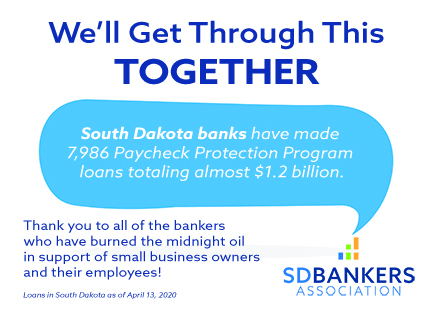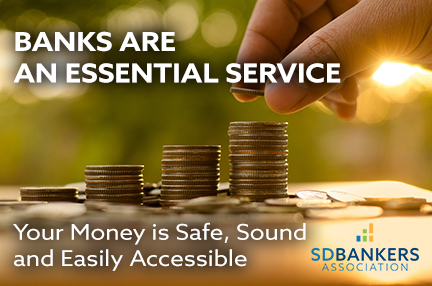The Internal Revenue Service yesterday launched a second online tool that enables consumers who have previously filed a tax return to check the status of their economic impact payment. Using the Get My Payment tool—available at IRS.gov—consumers can see the date their payment is scheduled to be deposited in their bank account or mailed to them and provide their bank account information to receive direct deposit if it is not currently on file with the IRS.
Taxpayers accessing the secure site will be asked to provide their Social Security number, date of birth and the mailing address used on their tax return. Taxpayers who need to add their bank account information will also need to provide their adjusted gross income for their most recent tax return submitted, the refund or amount owed from their last filed tax return, their bank account type, account and routing numbers.

 South Dakota banks have made 7,986 Paycheck Protection Program loans totaling almost $1.2 billion. Thank you to all of the bankers who have burned the midnight oil in support of small business owners and their employees!
South Dakota banks have made 7,986 Paycheck Protection Program loans totaling almost $1.2 billion. Thank you to all of the bankers who have burned the midnight oil in support of small business owners and their employees! To all bank employees throughout South Dakota
To all bank employees throughout South Dakota COVID-19 is causing many concerns with consumers, but access to your money shouldn’t be one of them. Banks are considered an essential service, so they will continue to operate and you will have uninterrupted access to your money. Here are the top five things to know about your money and South Dakota banks:
COVID-19 is causing many concerns with consumers, but access to your money shouldn’t be one of them. Banks are considered an essential service, so they will continue to operate and you will have uninterrupted access to your money. Here are the top five things to know about your money and South Dakota banks: